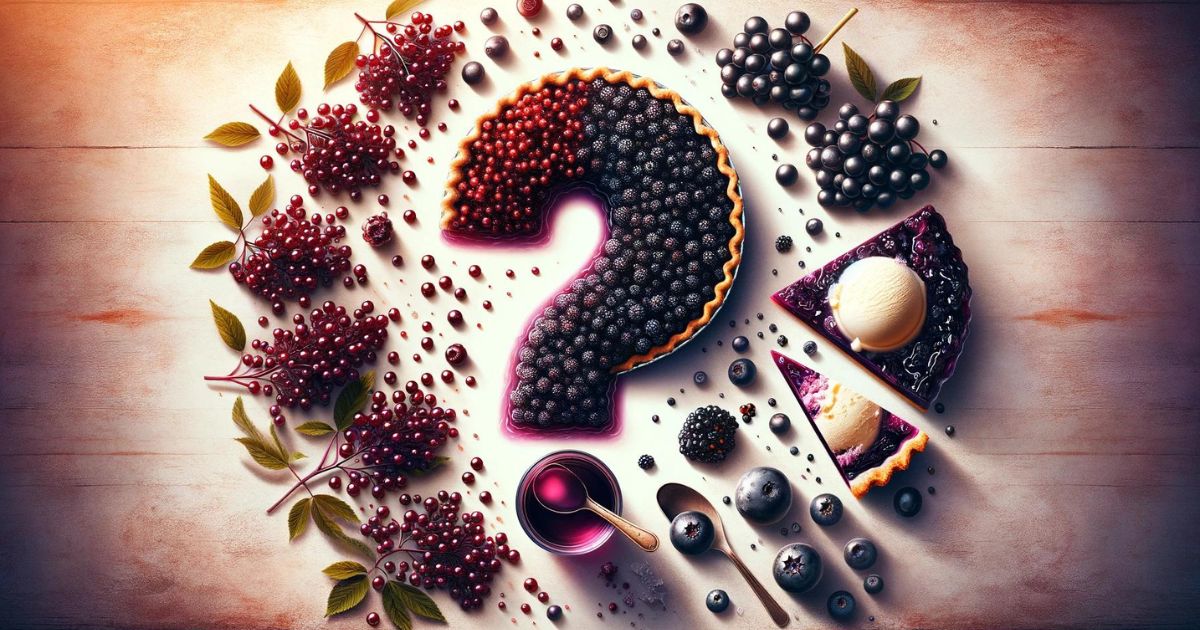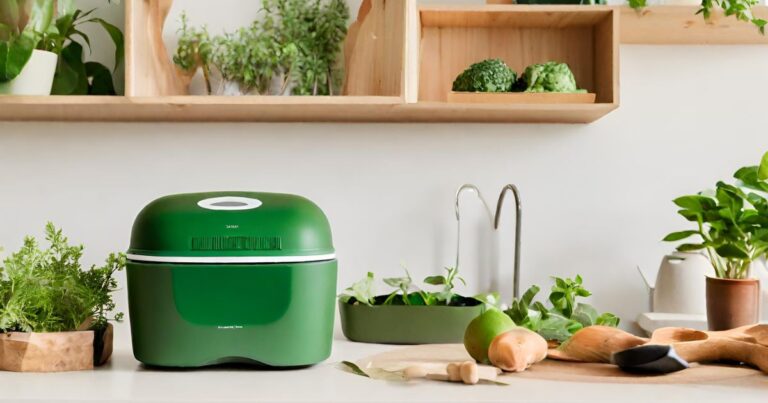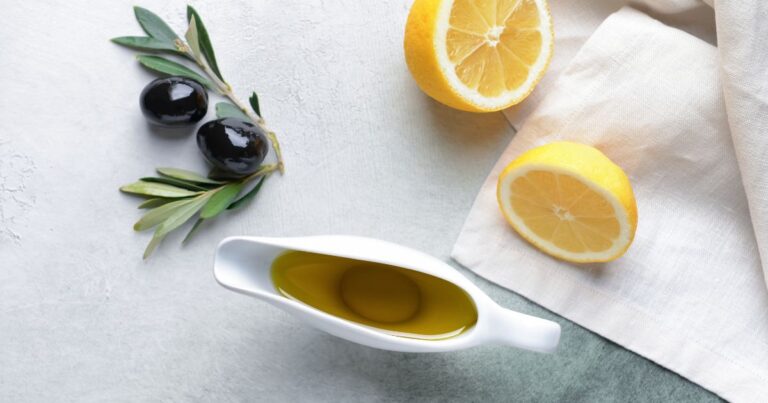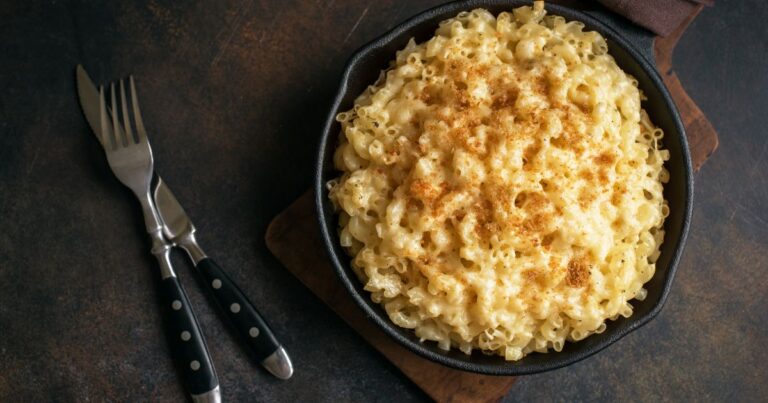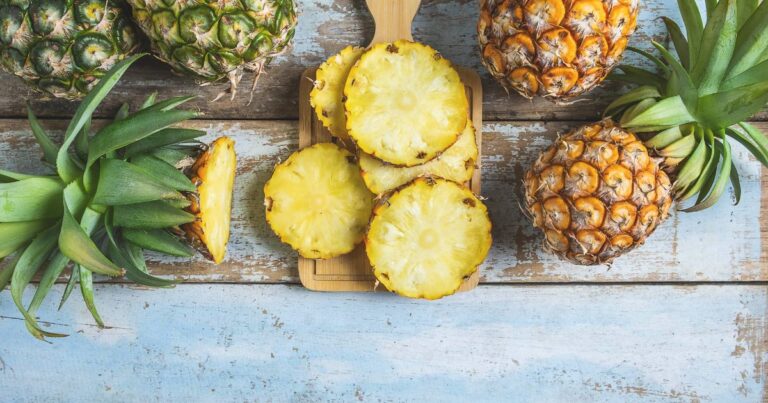How To Describe The Intense Taste of Elderberry Syrup
Elderberry has been on the rise in popularity due to its incredibly versatile uses, from natural medicines to an immune system booster. Before taking your first sip of Elderberry Syrup or opening a fresh pack of elderberry gummies you might be curious to know, What Does Elderberry taste like? Known for being a part of the berry family, I wouldn’t be quick to assume its flavors are similar to a juicy strawberry or raspberry. The Taste of Elderberry is closer to a bitter, woodsy, dark fruit with a hint of Floral. Let’s break down the actual flavor and taste profile of elderberries and throw in a few easy recipes to ease you into the world of Elderberries.
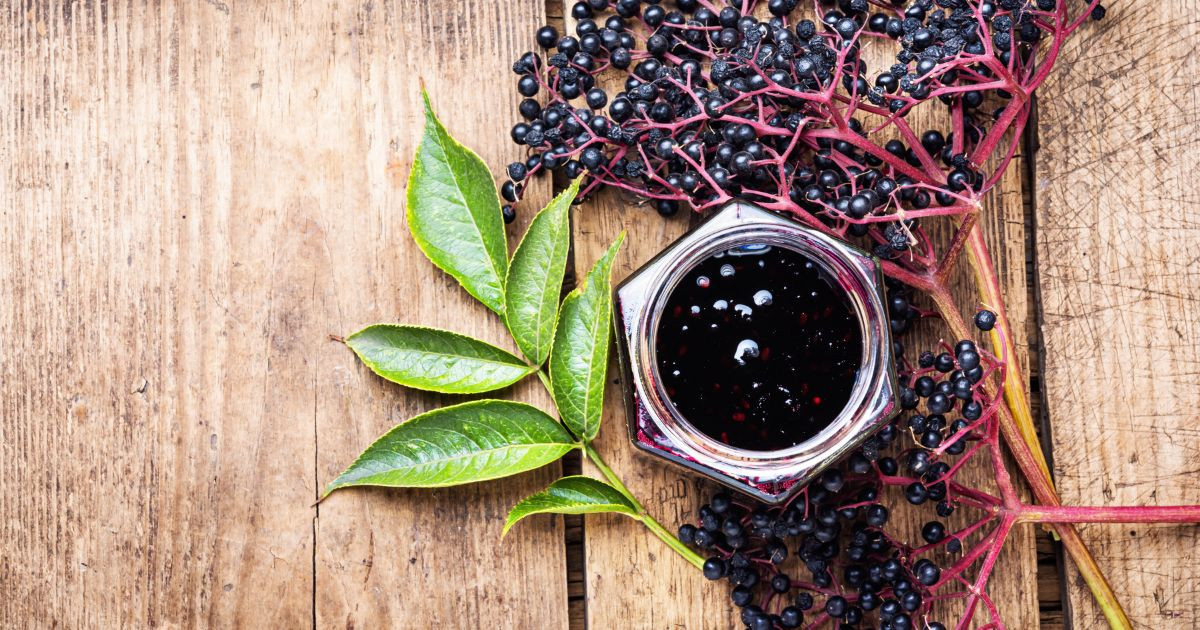
What Does Elderberry Taste Like?
Imagine wandering through a lush, verdant forest, stumbling upon a cluster of dark, almost mystical berries. That’s black elderberry for you – a berry that seems plucked from the pages of a fairy tale.
My journey with elderberries started at home, munching on elderberry gummies to keep my immune system intact. Let me tell you, it was love at first bite. Then came the elderberry syrup and juice, each sip and gulp a deeper dive into its rich, complex flavors with a full fledged immune booster built in.
Fresh Elderberries, those tiny orbs of goodness, are not just your average fruit; they’re a gateway to exploring the vibrant interplay of sweet, tart, and tangy delicious flavor.
What Does Elderberry Taste Like? From the fruity highs to the subtly earthy lows, the humble elderberry is your answer if you’ve ever savored the rich, intricate taste of blackberries or the sweet tang of raspberries but craved something with a bit more depth.
We’ll start by exploring its taste, history, health benefits, and culinary versatility, making it a staple in my kitchen. From the traditional syrup that promises to ward off colds to the playful gummies and the robust juice, elderberries have a knack for transforming everyday dishes into something extraordinary.
And to end it all, I’ve included some simple yet sensational elderberry recipes for you at home because I can’t resist sharing the love.
Table of Contents
The Flavor of Elderberry
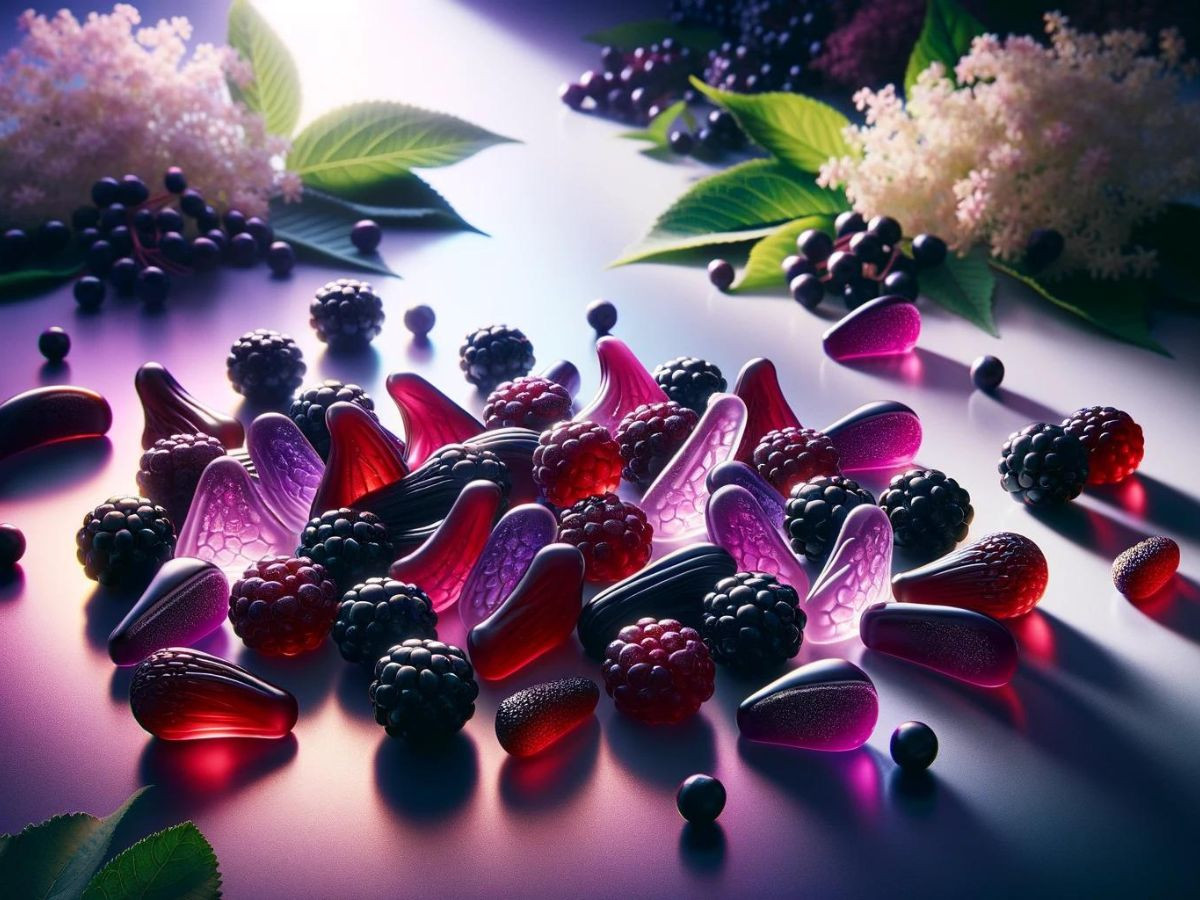
Elderberry syrup carries a hint of the berry’s natural tartness, balanced by the depth and sweetness that comes from its concentrated form. It’s like a dance of flavors on your palate, each sip or bite stepping into the elderberry’s intricate taste profile.
Elderberry juice, on the other hand, offers a more direct route to experiencing the berry’s essence. Its flavor is crisp, vibrant, refreshingly tart, and more nuanced than overwhelming sweetness. Drinking it, I’m reminded of late summer days and the first hint of autumn in the air, a perfect blend of sweetness and acidity that captures the transitional essence of the seasons.
In context, if you’re familiar with the taste of blackberries or raspberries, elderberries bring a similar berry-forward flavor but with a twist. They add an extra layer of tartness and a subtle earthy note, making them stand out among the sweeter fruits. This unique combination makes ripe elderberries versatile in culinary applications, from sweet treats to savory dishes and beverages.
Elderberries taste carries a sense of place and tradition, a reminder of the forests and wild spaces where they thrive. Cooking with elderberry products, whether it’s gummies, syrup, or juice, is a way to bring a piece of that wildness into our homes and onto our plates.
Elderberry Juice History
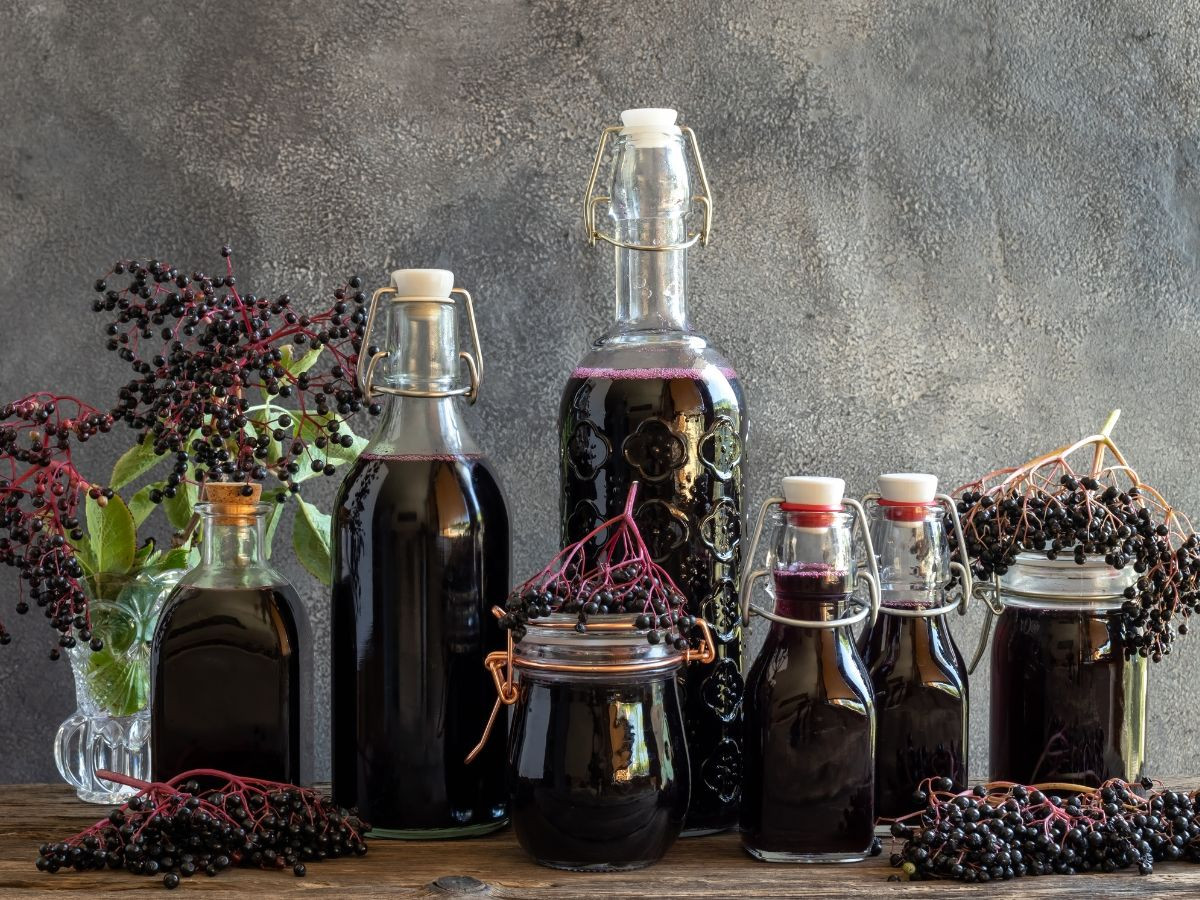
Long before cooked elderberries found their way into the bottles of syrup and bags of gummies that stock our modern pantries, they were deeply rooted in tradition and folklore. Elderberries have been woven into the fabric of cultures across the globe, revered not just for their unique flavor but for their perceived protective and healing powers. The history of elderberries is as rich and multifaceted as the berries, spanning continents and centuries.
Elderberry bushes, known scientifically as Sambucus, have been cultivated and wild-harvested for thousands of years. In ancient times, the elder tree was enveloped in a cloak of mystique and magic, believed to house protective spirits. To cut down an elder tree without permission from these spirits was to invite misfortune. This deep respect for the elder tree underscores the reverence with which the berries, flowers, and wood were regarded.
In medieval Europe, elderberries were a part of daily life and used to make wines, syrups, and medicines. They were a go-to remedy for many ailments, from toothache to the plague. The belief in elderberry’s protective qualities was so strong that branches were often hung over doors to ward off evil spirits.
Across the pond, Native American tribes recognized elderberries for their medicinal qualities, using them to treat infections, ease pain, and promote healing. This knowledge of elderberry’s healing properties is a testament to the observational skills and deep understanding of natural remedies that indigenous cultures hold.
Fast forward to today, and while we may not hang elderberry branches over our doors for protection, the berry’s health benefits continue to be supported by scientific research. Elderberries are celebrated for their immune-boosting effects, rich antioxidant content, and potential to alleviate cold and flu symptoms.
Health Benefits of Elderberry

The health benefits of elderberries are as compelling as their history. As someone who has enjoyed elderberry in many forms, from the tangy gummies to the soothing syrup, I’ve also appreciated the wellness boost these little berries develop and provide. Packed with vitamins and antioxidants, elderberries are a powerhouse of nutritional value.
Immune Support: Elderberries are rich in Vitamin C and antioxidants, crucial for bolstering the immune system. Consuming elderberry products can be a delicious way to support your body’s defenses, especially during cold and flu season.
Anti-inflammatory Properties: The anthocyanins found in elderberries have anti-inflammatory effects, which can help reduce swelling and pain. This makes elderberry products a treat for the taste buds and a friend to your overall health.
Antiviral Qualities: Research has shown that elderberries can inhibit the replication of viruses, making them a natural ally in the fight against viral infections like the flu. Elderberry syrup, in particular, has been noted for its effectiveness in shortening the duration of flu symptoms.
Elderberry in the Kitchen
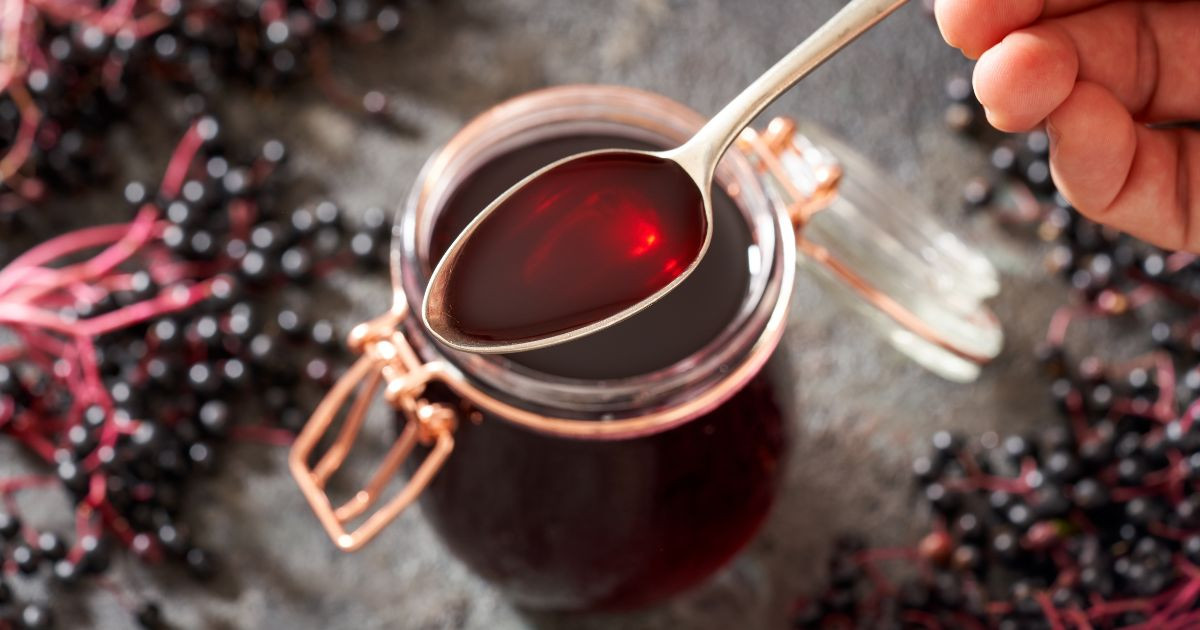
Bringing elderberries into the kitchen is like inviting a bit of wild nature to dinner. Their unique flavor profile – a blend of tart, sweet, and earthy notes – makes them a versatile ingredient that can elevate various dishes. From the simplicity of elderberry gummies as a snack to the sophistication of elderberry syrup drizzled into a cup of Lion’s Mane Tea, elderberry pairs with various dishes and always brings something special to the table.
Cooking with Elderberries

Elderberries have a tartness that can be a delightful contrast in sweeter dishes, while their depth of flavor adds complexity to savory recipes. However, it’s crucial to note that raw elderberries, along with the leaves and stems of the plant, contain a compound that can be toxic if ingested in large quantities. Cooking elderberries and storing them properly in nontoxic food containers neutralizes this compound and concentrates their flavors, making them safer and more delicious.
Syrup: Elderberry syrup is perhaps the most popular culinary use of the berry. Its rich, velvety texture and deep flavor make it a versatile ingredient. Use it as a topping for pancakes or waffles, swirl it into yogurt or oatmeal, or incorporate it into cocktails and mocktails for a burst of berry goodness.
Juice: Elderberry juice offers a tart, refreshing taste perfect for sipping on its own or blending into smoothies. It can also serve as a base for dressings and marinades, adding a fruity note to salads and grilled meats.
Baked Goods: Incorporate elderberry syrup or dried elderberries into muffins, cakes, and bread for a burst of berry flavor. They add a lovely color and a tangy sweetness that pairs well with other fruits, especially apples and pears.
Elderberries Beyond the Basics
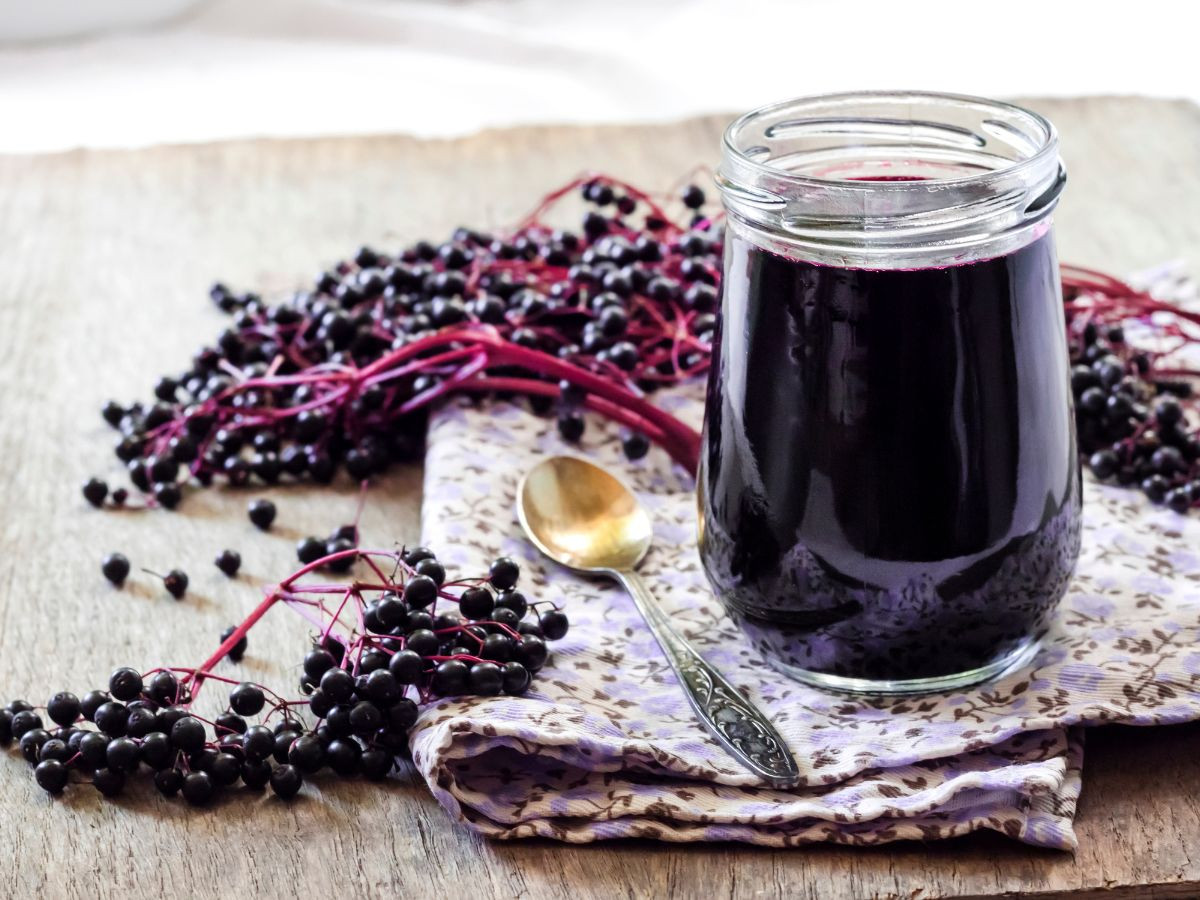
If you’re lucky enough to live in a region where elderberries grow wild, foraging for them can be a rewarding experience. Not only does it connect you with the local ecosystem, but it also offers the freshest, most flavorful berries for your cooking.
Elderberry Recipes
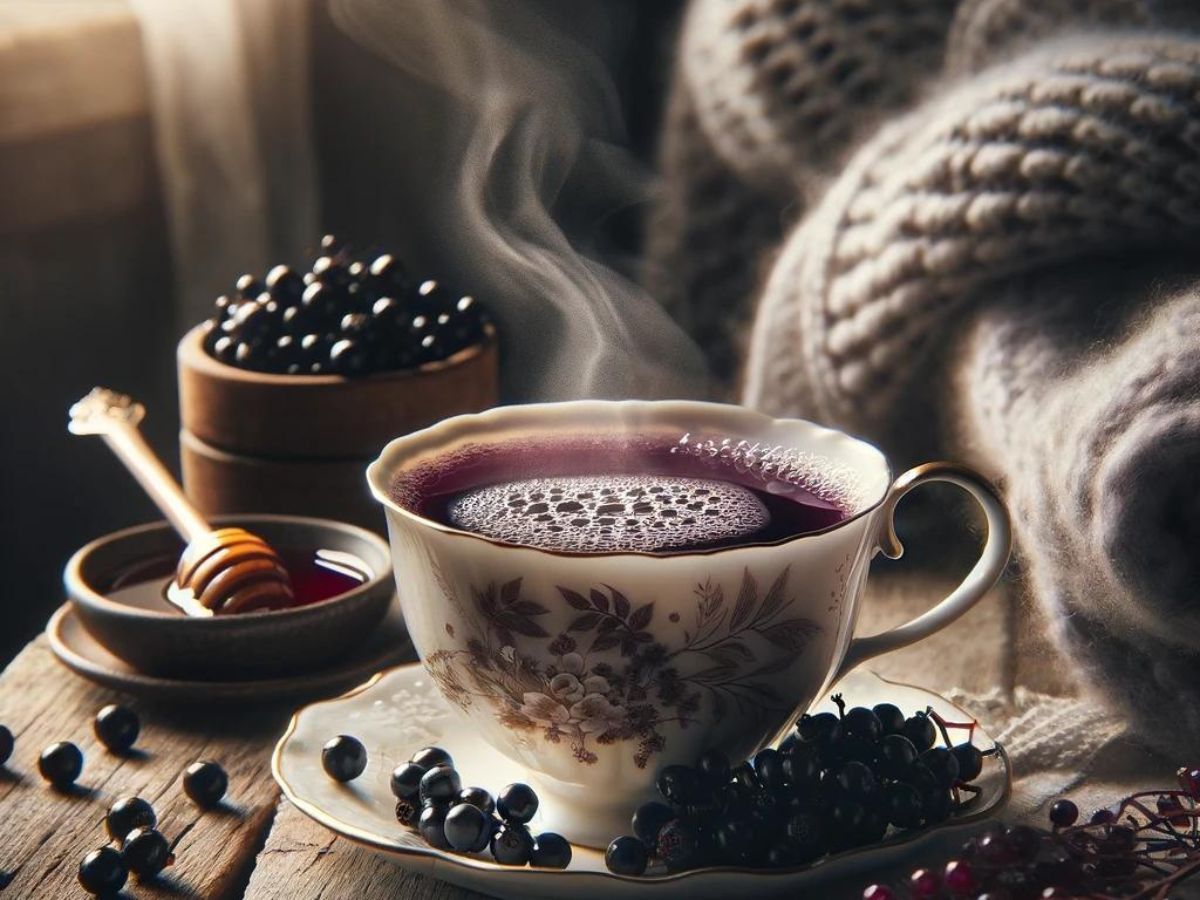
Now, let’s get to the fun part – the recipes. These two easy recipes showcase elderberries’ versatility and promise to bring a taste of the wild into your home cooking.
1. Elderberry Tea
It is a soothing, immune-boosting tea perfect for winding down after a long day.
Ingredients:
2 tablespoons dried elderberries
4 cups water
1 cinnamon stick (optional)
Honey or sweetener of choice to taste
Instructions:
In a medium saucepan, combine elderberries, water, and cinnamon sticks.
Bring to a boil, reduce heat, and simmer for 15-20 minutes.
Strain the mixture into mugs, discarding the used elderberries and cinnamon sticks.
Sweeten with honey or your preferred sweetener, and enjoy warm.
2. Elderberry Vinaigrette
An innovative way to add a burst of flavor to your salads.
Ingredients:
1/4 cup elderberry syrup
1/4 cup balsamic vinegar
1/2 cup extra virgin olive oil
Salt and pepper to taste
A small clove of garlic, minced (optional)
Instructions:
In a bowl, whisk together elderberry syrup and balsamic vinegar.
Gradually add the olive oil, whisking continuously to emulsify.
Season with salt, pepper, and minced garlic, if using.
Drizzle over your favorite salad and enjoy.
What Elderberry Taste Like: The Conclusion
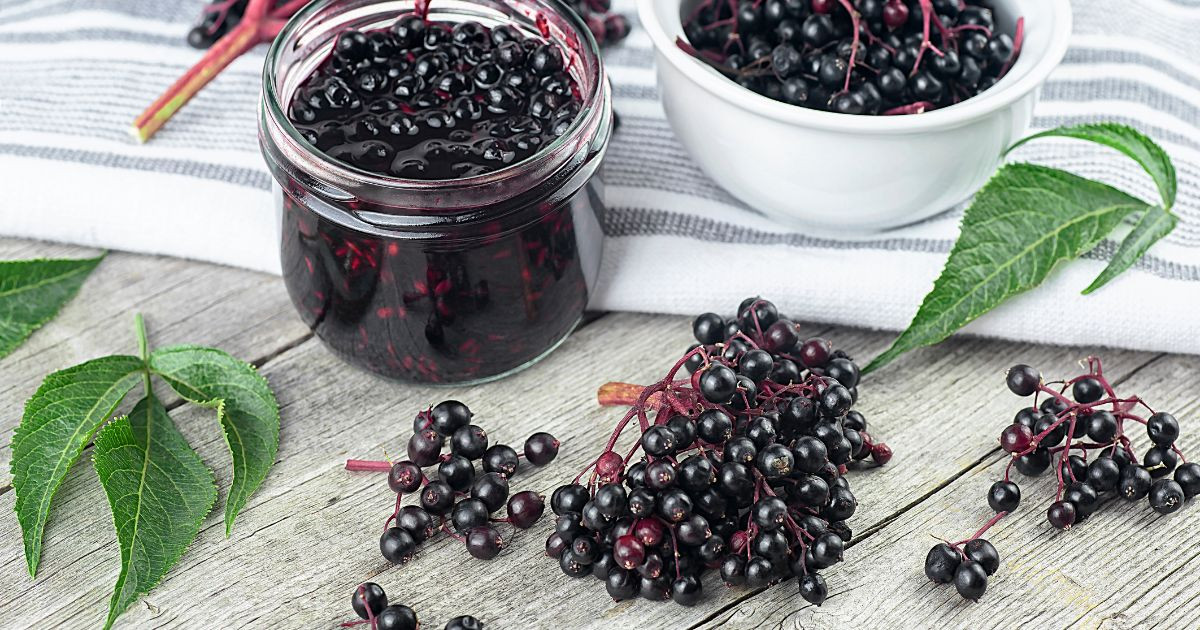
Elderberries offer a unique blend of tartness, sweetness, and depth that can transform dishes and delight our palates. Beyond their culinary appeal, elderberries connect us to a tradition of natural wellness, offering health benefits that have been recognized for centuries.
Incorporating elderberries into our diets, whether through the tangy punch of gummies, the rich depth of syrup, or the refreshing zing of juice.
The recipes shared here are just the beginning of what you can create with elderberries, inviting you to explore their versatility and make them a staple in your culinary adventures.
Foraging for elderberries can connect us with our environment while cooking with them can link us to history and tradition. They remind us of the importance of preserving natural habitats and respecting the wildness from which these berries come.
FAQ and Additional Information
Does elderberry taste good?
Elderberry has a unique flavor that is impossible for one to define. Often, they are called sweets or tarts, but others find bitterness. It may also be different according to ripeness. Besides being tasty, elderberries have also been regarded for their health advantages.
Can you eat elderberries raw?
Elderberries have an uncooked toxic substance, and it is therefore important for anyone to cook them. Commercial products containing Elderberry, including syrup or liqueur, are noncontiguous to these ingredients, and the reason for this may have been that they are not dangerous to humans.
What is the best way to eat elderberry?
Several elderberry products are available as supplements and preparations, like gummies, lozenges, syrup, and tea; most are in syrup form.
Can you eat elderberries straight from the tree?
Elderberry needs cooking, drying, or processing to be safe for consumption. The fruit has mild toxicities when eaten raw. If you eat raw foods, it will probably cause you a stomachache and nausea.

